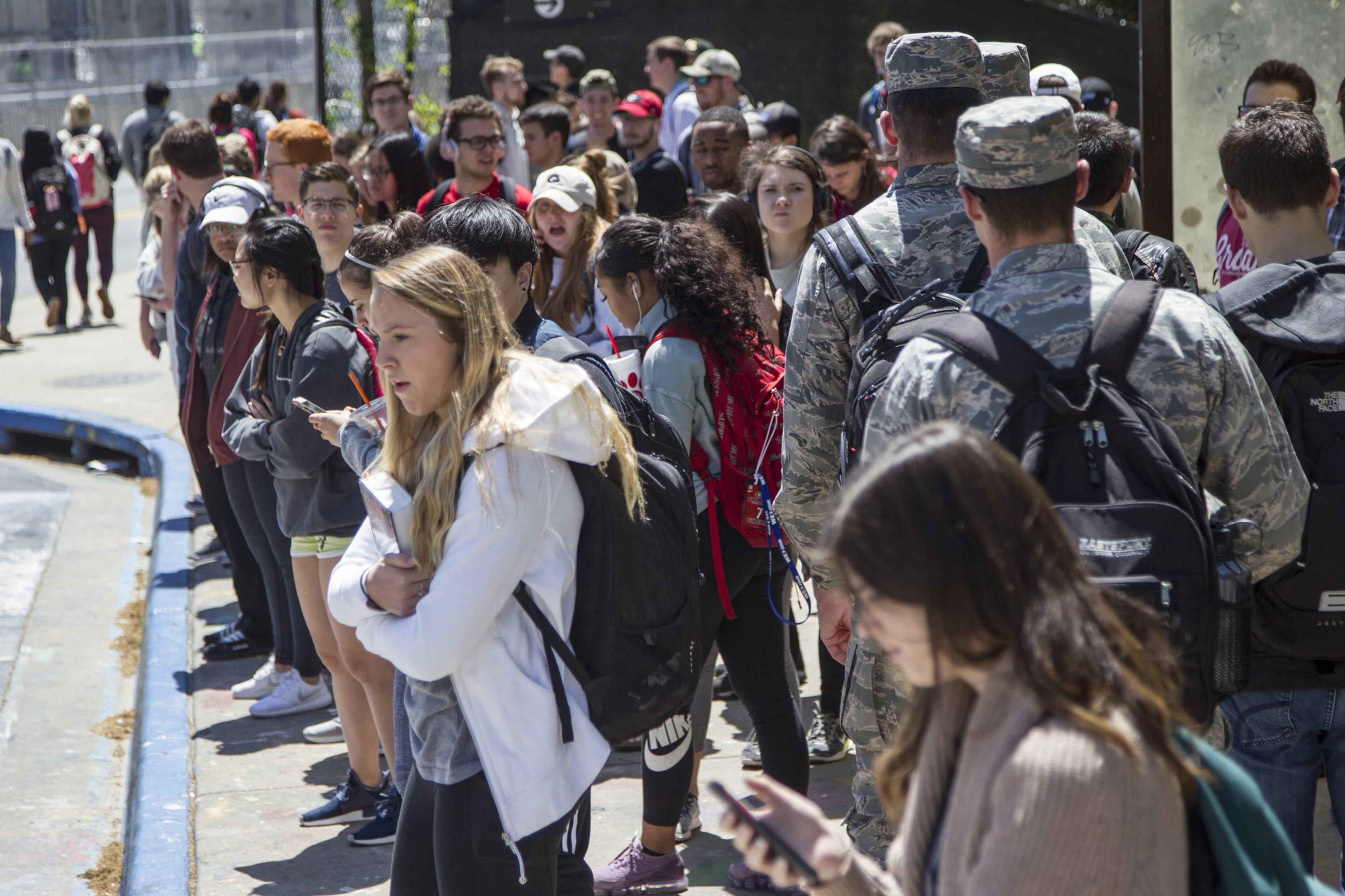Mental health task force created to help Georgia college students

ATHENS — With statistics showing 1 in 4 college students nationwide have a diagnosable mental illness and news accounts of students committing suicide, University System of Georgia leaders recognized they had a problem.
On Wednesday, the system announced it has created a 14-member task force to find more support and services for students struggling with anxiety, stress and mental illness.
The task force of college administrators, mental health professionals, faculty and students will look at what’s working at some of its 26 colleges and universities and identify successful programs at schools across the nation to see if they can be replicated in Georgia. Additionally, the task force will explore partnerships with state and local agencies to support students. The University System last year had a record-high enrollment of about 328,000 students.

“Incidents of mental health challenges are too common on campuses across the country and in the University System,” said Chancellor Steve Wrigley in a press release announcing the task force. “Many (students) do not seek assistance” for the issues they’re facing, he said during a state Board of Regents meeting Wednesday at the University of Georgia.
Some Georgia students and their families have complained that the schools do not offer enough counseling services. Two Georgia Tech students died from apparent suicides late last year.
The concerns were highlighted two years ago when a Georgia Tech student was shot and killed by a campus police officer. The student, Scout Schultz, had previously sought counseling off campus for mental health issues and suffered from depression.

Schultz's family filed a lawsuit last month against Georgia Tech and the University System. Several Georgia Tech students applauded when its new president, Angel Cabrera, said in his first campuswide address last month that one of his top goals is improving mental health services.
Scout’s dad, Bill, said Wednesday that Georgia Tech had inadequate mental health services on campus in 2017 when Scout was killed.
> RELATED: Tech students call for more mental health services
“Anything that would improve the services is to the good,” Bill Schultz said in a telephone interview about the task force.
Ten percent of American college students have seriously considered suicide, according to some research. In 2017, suicide was the second-leading cause of death of 15-to-24-year-olds, according to federal government statistics.
As some communities have fewer counseling services, more students are seeking help on campus, said Victor Schwartz, chief medical officer of the JED Foundation, an organization that works with schools on mental health issues.
Students, he said, are feeling greater anxiety about the world and their futures. Students in small numbers on campus — such as military veterans, international students, and LGBTQ students — often feel more isolated at college and need greater support, Schwartz said.
>> RELATED | Why is student mental health at Georgia Tech and other schools worsening?
A key element of the task force’s work will be determining what additional financial resources are necessary, said Albany State University President Marion Fedrick, co-chair of the task force.
Fedrick said in an interview that students deal with stress from their coursework or from living apart from their parents or guardians for the first time. Fedrick added the task force must also explore mental health needs for faculty and staff. She noted last month’s suicide by the executive director of counseling and psychological services at the University of Pennsylvania.
“I don’t think you can do (a mental health assessment of) students without faculty and staff,” she said.

Fedrick added parents must pay more attention to see if their children are experiencing anxiety at college and encourage them to seek counseling.
Several UGA students interviewed Wednesday said the task force is needed.
Third-year student Ashton Beuglas, 20, of Buford said she has gone to a facility on campus to seek services to get help with stress and other issues. Many classmates, though, are reluctant to discuss mental health challenges or seek assistance, she said.
“It’s not something that people talk about a lot,” said Beuglas, a criminal justice major. “It’s seen as a stigma.”
>> READ | Lawsuit seeks accountability from Georgia Tech, officer
First-year student Cash Robinson, 18, said he dealt with stress last week during midterm exams by writing and getting involved in various campus activities.
“I think it’s a pretty big problem across the board in our country,” said Robinson, a theater and entertainment media studies major. “I would like to see them work on this.”
Schwartz said many colleges believe the solution to campus mental health issues is solely hiring more counselors. The better approach is for schools to work collaboratively with community organizations, he said.
“We’re trying to get people to break down those barriers,” said Schwartz, whose organization has worked with Georgia Tech and three other USG schools.
Fedrick said the task force will begin meeting later this year and hopes to complete a report with recommendations by early 2020.



